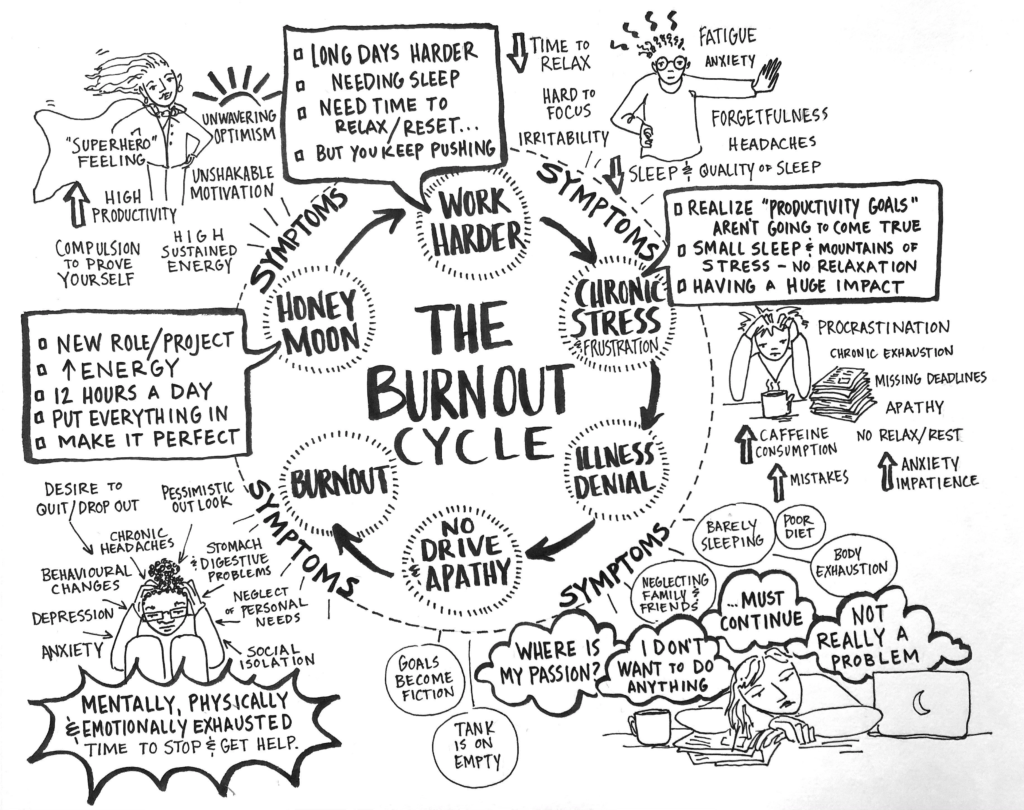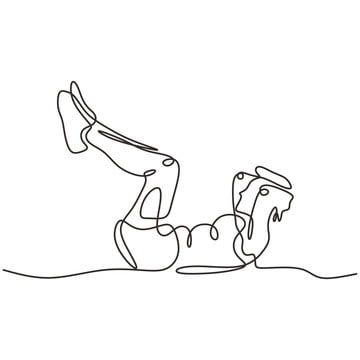So everyone has come to the realisation that we can burnout not only physically but also mentally, which in turn affects us physically as well. Workplace and school burnout can be crippling afflictions. It’s not uncommon to experience emotions such as tiredness and powerlessness, as well as a growing dissatisfaction with one’s current situation.
Naturally, this might have a negative influence on your work and school. But, more significantly, it could have a negative impact on your mental health. Let’s unpack the cycle of burnout and how to escape and recover from it.
Burnout cycle
The cycle is best identified by six stages, namely:
- Excessive ambition, aka the Honeymoon stage
- Working harder
- Stress and Anxiety phases
- Illness Denial: Increase in denial of the problem, therefore decreasing flexibility of thought or behaviour
- Lack of Drive and Apathy
- Burnout: Mental, physical, and emotional exhaustion
In most cases, the cycle continues after the burnout stage. This is mostly attributed to the compulsion to prove oneself, which is highly present during or after burnout. To help understand the cycle better, the image below goes into greater detail about it.

How to recover and escape the cycle
Rule #1: Non-negotiable self-care
When you are working in a sector you are deeply passionate about, it might be fulfilling. But in the long run, your enthusiasm won’t be enough to keep you from becoming burned out. So, make sure you invest in yourself. Take care of yourself as usual, but make sure the following are non-negotiable:
- Enjoy a balanced meal away from your desk.
- Engage in enjoyable activities.
- Spend some time relaxing and doing nothing, whatever that may appear to you, e.g., being outside.
- Spend adequate time on your physical appearance. Remember, you feel better when you look better.
Rule #2: Relational communication

A major side effect of burnout is faltering relationships. To prevent this from happening, call or send a message to someone you care about. However, if your burnout has affected those that you live with, make sure you sit with them, apologise, and explain your situation to them. Hopefully, they will understand and give you time to work through things.
Rule #3: Physical activity
Regular exercise may considerably boost your mood. Just 15 minutes a day spent outside is sufficient. Although it may seem like a lot, especially for those of us who are “allergic to exercise”, the truth is that the chemicals our brain releases during exercise can really boost our mood!

Rule #4: Rest
Sleep is extremely important! Good sleep equals good healing. If you are not sleeping well, that means your body is not healing, so try to get 6–8 hours of sleep every night.
Finally, if you’ve identified a behavioural pattern that is a risk factor for burnout, address it first and start changing that behaviour. If you think you may already be suffering from burnout or if you think your mood is affecting your ability to do your daily routines, especially the things you normally enjoy, it’s may do you some good to talk to a mental health professional.




One Reply to “How to recover from a burnout”